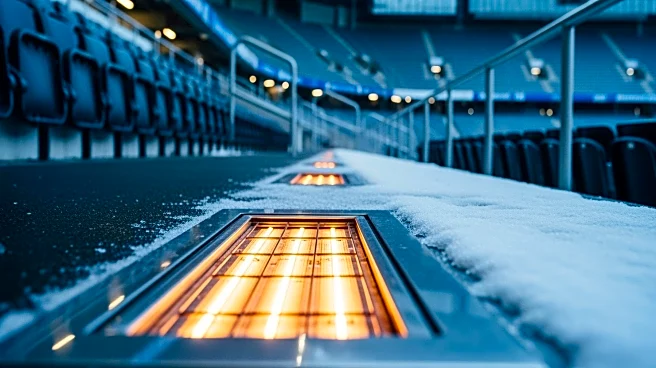What's Happening?
Creatine, a popular supplement for enhancing athletic performance, may cause headaches in some individuals due to its effect on fluid balance. Dr. Stuart Hesketh from the University of Lancashire explains that creatine draws water into muscle cells, which can feel like dehydration and trigger headaches if users do not drink enough water. While creatine does not directly cause dehydration, it increases the body's fluid needs, necessitating higher water intake. Health experts recommend maintaining proper hydration and electrolyte balance to mitigate potential side effects.
Why It's Important?
Creatine is widely used by athletes and fitness enthusiasts for its performance-enhancing benefits. Understanding its potential side effects, such as headaches, is crucial for safe and effective use. Proper hydration and electrolyte management can help users avoid discomfort and maximize the benefits of creatine supplementation. This information is vital for individuals seeking to improve their athletic performance while minimizing adverse effects.
What's Next?
Users experiencing headaches while taking creatine are advised to check their hydration levels and consider adjusting their fluid intake. Splitting creatine doses into smaller servings may also alleviate discomfort. If headaches persist, consulting a healthcare professional is recommended to rule out other causes. Continued research into creatine's effects on fluid balance and hydration may provide further insights into optimizing its use.
Beyond the Headlines
The discussion around creatine highlights the importance of understanding supplement interactions with the body's fluid and electrolyte balance. As creatine use becomes more prevalent, awareness of its effects on hydration and potential side effects is essential for informed decision-making in sports nutrition.









